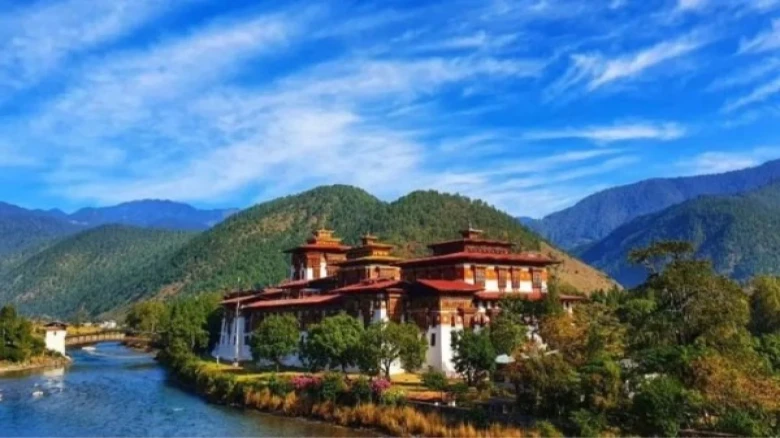Entertainment
Digital Desk : A new controversy has erupted between singers Diljit Dosanjh and AP Dhillon. It took centre stage during AP Dhillon's concert in Chandigarh where he accused Diljit of blocking him on Instagram.

It is the first time since the Covid-19 pandemic began that the country has allowed tourists from all over the world to enter.
Digital Desk: Bhutan's borders will reopen to international tourists on September 23. It is the first time since the Covid-19 pandemic began that the country has allowed tourists from all over the world to enter.
The small Himalayan country, along which India and China border, is preparing to revitalize its economy. Bhutan, known for its natural beauty and ancient Buddhist culture, closed its border to tourists in March 2020 after reporting its first COVID-19 case.
Bhutan's Tourism Ministry announced that the sector would be revamped, focusing on three key areas. The infrastructure and services, tourist travel experiences, and environmental impact will be prioritized.
Dr. Tandi Dorji, Bhutan's Foreign Minister, stated that COVID-19 has allowed the country to rest and rethink how the sector can be best structured and operated. He also stated that this step is being taken to benefit the country's economic and social benefits and reduce carbon footprints.
"In the long run, our goal is to provide high-value experiences for visitors while also providing well-paying and professional jobs for our citizens," Dorji added.
Among the changes are revised standards for service providers such as hotels, guides, tour operators, and drivers, who will soon be subjected to a more stringent certification process before engaging tourists. Employees must participate in skill development and reskilling programs to improve service quality.
Bhutan will also take steps to keep the country carbon-neutral and a green tourist destination in the face of climate change.
The Sustainable Development Fee (SDF) for tourists is raised from 65 USD (US dollar) per person per night to 200 USD. It will be used to support activities that promote carbon-neutral tourism. Indian visitors will be charged a previously specified fee, revised later.
Simultaneously, the Minimum Daily Package Rate (MDPR) will be eliminated. Tourists can engage service providers directly and pay for their services.
"Our tourism sector revitalization strategy returns us to our roots of 'High Value, Low Volume' tourism, where we meet the needs of tourists while protecting our people, culture, values, and environment."
Tourism is a strategic and valuable national asset that affects all Bhutanese, not just those who work in the industry. "Ensuring its sustainability is critical to protecting future generations," said Dorji Dhradhul, Director General of the Bhutan Tourism Council.
Leave A Comment